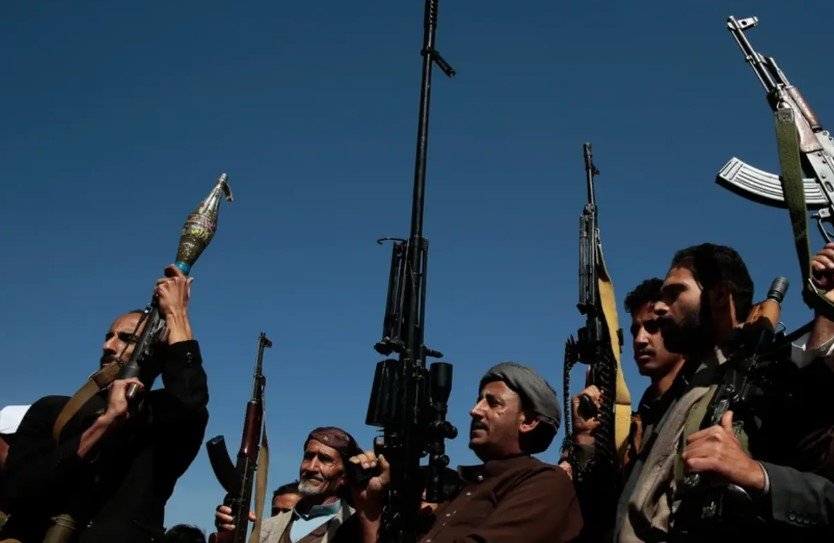Israel’s military has launched a series of air strikes on key infrastructure targets in Yemen, including power plants, an oil facility, and a port city. This escalation comes after Israel intercepted a missile fired by Houthi fighters toward its territory.
Air Strikes Target Houthi Military Sites
On the morning of December 19, 2024, Israel’s Defense Minister Israel Katz approved a military response that saw Israel’s Air Force jets strike military targets linked to Houthi rebels. The targets were located in Yemen’s western coastal strip and deep within the country, including vital infrastructure sites used by Houthi forces for military operations.
In an official statement, the Israeli military described these strikes as a direct response to a missile launched by the Houthis that was intercepted over Israeli airspace. The missile, which was intended to strike Israel, marked a sharp escalation in tensions between the two sides.
The Israeli military’s action was part of broader efforts to neutralize threats posed by the Houthi-controlled areas of Yemen, where the rebel group has been heavily involved in regional conflicts. The Houthis, who have received significant backing from Iran, have increasingly targeted neighboring nations with missile and drone attacks.

Destruction in Hodeidah and Sanaa
The Houthis claimed that Israel’s air strikes targeted key facilities in the Yemeni capital of Sanaa and the port city of Hodeidah. According to Al Masirah TV, which is aligned with the Houthi movement, Israeli fighter jets carried out several “aggressive raids” early Thursday. These raids included attacks on two central power plants in Sanaa and four separate raids on the strategic Hodeidah port.
In addition to the power plants, the air strikes also hit an oil facility in Hodeidah, further exacerbating the humanitarian and economic crisis in Yemen. The SABA news agency reported that two of the attacks targeted the Ras Isa oil facility, resulting in casualties among the employees working there.
This move comes at a time when Yemen’s humanitarian situation is already dire, with millions of people affected by the ongoing civil war and blockades. The country has seen widespread destruction, including in the areas controlled by the Houthis.
Regional Tensions Escalate
The escalation in Yemen is part of a larger pattern of rising tensions in the region. Israel has previously warned of the growing threat posed by the Houthi group, which has aligned itself with Iranian interests and increasingly targeted countries in the region with missiles and drones. The Israeli air strikes are a clear indication that Israel is determined to defend itself from further missile threats originating from Yemen, even as the Houthis remain locked in a years-long conflict with the Saudi-backed government in Yemen.
In the past, the Houthis have claimed responsibility for multiple attacks on Israeli and U.S. military assets in the region, including missile and drone strikes on U.S. warships. They have also taken credit for firing a hypersonic missile at central Israel, though the attack was unsuccessful.
The Larger Implications
The broader implications of these air strikes may include heightened military tensions between Israel and the Houthis, as well as a further destabilization of the already fragile situation in Yemen. The conflict has caused devastating humanitarian consequences, and these new attacks are likely to aggravate both the conflict’s intensity and its toll on civilians.
Additionally, the ongoing regional proxy struggle between Iran and Saudi Arabia continues to fuel violence and instability. The involvement of Houthi forces, supported by Iran, has been a significant factor in the long-running war in Yemen, with Israel now becoming more directly involved due to security concerns over missile threats.
These events highlight the interconnected nature of conflicts across the Middle East, where actions in one country often have ripple effects that reverberate across borders. Israel’s recent strikes in Yemen are a testament to the deepening security concerns that have been a hallmark of the region for decades.
